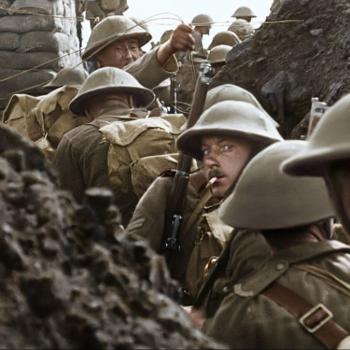As noted by the Catholic Peace Fellowship, the Church has recognized Austrian farmer Franz Jägerstätter as a martyr for the faith, clearing the way for his beatification, and ultimately, his canonization.
Jägerstätter was an Austrian farmer who refused to be drafted by the Nazis. He was advised to cooperate by his parish priest and his local bishop, on the grounds that he needed to support his family and that he had a responsibility to obey legitimate secular authority. But Jägerstätter refused. He reasoned very clearly that while obedience to the government was ordinarily required, this was not the case in gravely evil situations. To be drafted by the Nazis was to collaborate in evil. “Following orders” was not a licit defense. He was executed by the Nazis in 1943.
The case of this martyr offers lessons for today. We hear far too often, including from Catholic voices, that military personnel must obey legitimate authority. But no individual person should obey an order that is immoral. In fact, it is the duty of every Christian not to cooperate in evil, no matter what commanding officers or governments declare. An official Pentagon survey of US soldiers in Iraq recently came out with some shocking findings. More than one third support torture for gathering information, and this rises to 40 percent to save the life of a fellow soldier. Two-thirds would turn a blind eye to mistreating civilians or wantonly destroying property. Less than half think that non-combatants are worthy of respect and dignity. And 10 percent have actually mistreated civilians.
In such an environment, we need to appeal to the example of Franz Jägerstätter. No, the US army is not comparable to the Nazis, lest anybody accuses me of going there. But such a complacent attitude to torture and other abuse does entail cooperation in evil, and if the “legitimate authority” (either the military or the civilian government) gives such orders or sets such policy, then the individual solider is duty bound to disobey. As Jägerstätter realized, to do otherwise would place his soul in jeopardy. And while Catholics can sometimes disagree on the morality of specific wars, it is essential that every person in the military be granted the right to selective conscientious objection, so that Catholics and others can opt out of wars they deem unjust (as the Church described the Iraq war) without penalty. In the current atmosphere that practically forbids any criticism of American military personnel, I think it is extremely important to make these points.












